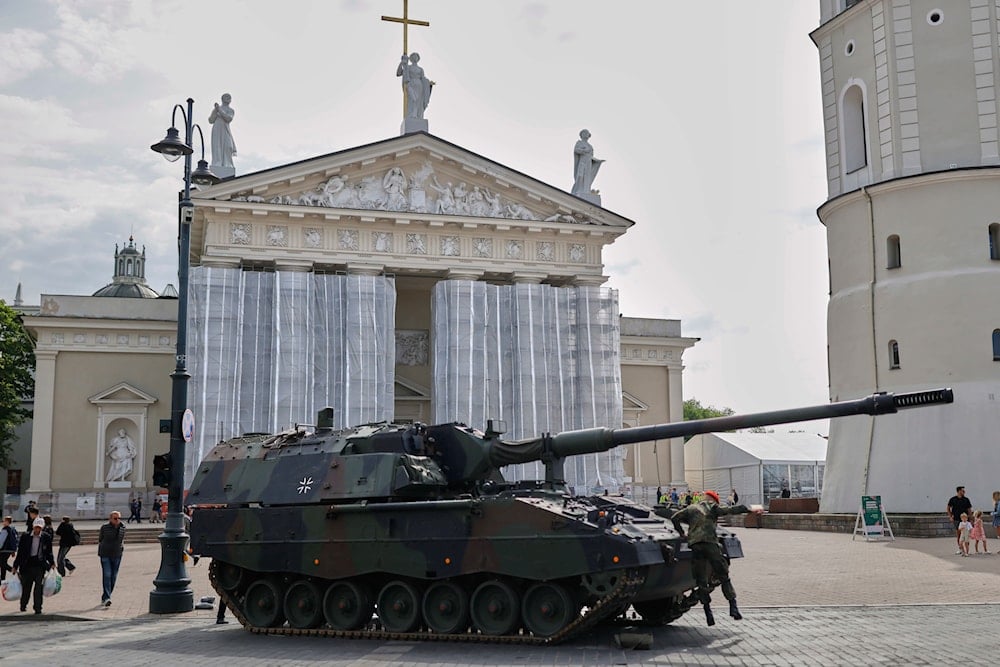Russian intelligence director warns of rising militarization in Europe
Russian intelligence chief Sergey Naryshkin warns that Europe’s militarization narrative resembles Nazi-era tactics, driven by a fabricated “threat from the East” and US influence.
-

A German tank stands in front of the cathedral before the formal inauguration of a German brigade for NATO's eastern flank in the center of Vilnius, Lithuania, on May 22, 2025. (AP Photo/Mindaugas Kulbis)
Russian Foreign Intelligence Service (SVR) Director Sergey Naryshkin warned that Europe is undergoing an aggressive push toward militarization, driven by what he called an "imaginary threat from the East."
Speaking at an international gathering of senior security officials, Naryshkin drew stark comparisons between current European rhetoric and the propaganda used by Nazi Germany before World War II.
He stated, "European citizens are being persuaded of the need for militarization, scaring them with an imaginary threat from the East. By the way, Hitler acted in the same way on the eve of World War II," accusing Europe’s ruling class of lacking independent strategic thinking, claiming that many leaders had become complacent under US tutelage.
"The European ruling groups, accustomed to living under American tutelage, seem to have become unaccustomed to strategic thinking," he said.
Naryshkin identified the Ukrainian crisis as a clear example of this mindset, criticizing European nations for using Ukraine as a geopolitical tool against Russia, adding that "Europe persists in trying to use Ukraine as a battering ram against Russia and at the same time arming itself."
Additionally, he condemned what he termed the neocolonial inertia of the European Union, describing its continued actions as an extension of outdated imperialistic logic.
Growing repression against anti-militarization voices in Europe
While Naryshkin acknowledged that "sensible politicians" in Europe are beginning to raise concerns about the dangers of militarization, he also warned that these voices face increasing repression.
"Their voices are getting louder, but repression against them by the so-called liberal, but totalitarian, democracy is also on the rise," he said, citing the ongoing political crises and legal challenges faced by opposition parties and figures, naming the presidential election tensions in Romania, and the persecution of the National Rally in France and the Alternative for Germany (AfD) as evidence of the crackdown.
The SVR chief argued that much of Europe’s current policy posture stems from an unwillingness to break away from US strategic priorities, particularly regarding military buildup and relations with Russia.
Naryshkin's remarks come amid heightened tensions between Russia and NATO countries, as the European Union moves to deepen its defense alignment and increase military spending.
It is worth mentioning that earlier this month, US Secretary of State Marco Rubio announced that all NATO member states are expected to agree on a new defense spending goal, raising their military budgets to 5% of GDP within the next ten years.
"All [NATO countries] will have agreed on a goal of reaching 5% [of GDP on defense] over the next decade," Rubio stated during an interview with Fox News in mid-May, highlighting a major shift in the alliance’s strategic and financial posture.
Rubio also noted that by the time of the upcoming NATO summit in The Hague, every member of the alliance will have reached at least 2% of GDP in defense spending, with several countries expected to exceed 4%.

 3 Min Read
3 Min Read










